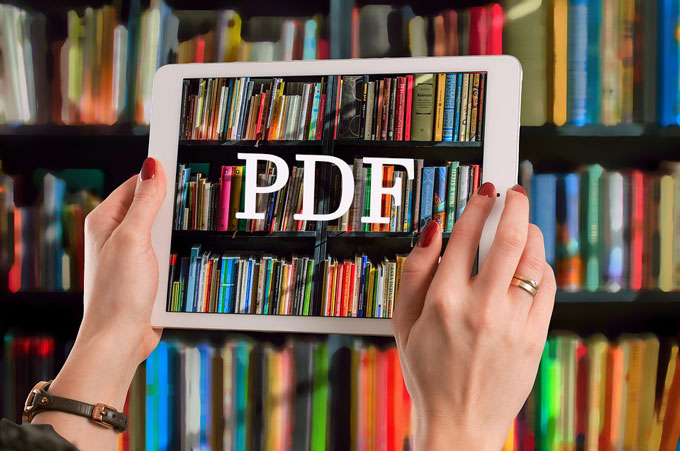The Importance of PDF Books in the Digital Age
 PDF Books in the Digital Age
PDF Books in the Digital Age
In the modern world, where technology seamlessly integrates with daily life, the way we access and consume information has drastically evolved. Printed books, while still cherished, have been joined by their digital counterparts, notably PDF books. PDF (Portable Document Format) has become one of the most popular formats for digital books, offering a multitude of benefits that make it an invaluable resource for readers of all kinds. This article explores the significance of PDF books in the digital age.
1. Accessibility and Convenience
One of the most significant advantages of PDF books is their accessibility. Unlike physical books, which require space and are not always available when needed, PDF books can be accessed anytime and anywhere with an electronic device. Whether you are on a train, at a café, or in a remote location, all you need is a smartphone, tablet, or computer to access your library of PDF books. This convenience allows for a more flexible and mobile reading experience.
2. Portability
Carrying around multiple physical books can be cumbersome. In contrast, a single device can hold hundreds or even thousands of PDF books without adding any weight. This is particularly useful for students and professionals who need to carry multiple references or textbooks. The portability of PDF books ensures that important information is always within reach, facilitating continuous learning and productivity.
3. Cost-Effectiveness
PDF books are often more affordable than their printed versions. Many are even available for free, especially classic literature, research papers, and educational resources. This cost-effectiveness makes knowledge more accessible to a broader audience, including those who might not be able to afford traditional books. Moreover, the reduced cost of production and distribution makes PDF books an environmentally friendly option as well.
4. Searchability and Quick Reference
One of the standout features of PDF books is the ability to search through the text quickly. This is particularly useful for academic and professional purposes, where specific information needs to be located swiftly. Instead of flipping through pages manually, a quick keyword search can lead directly to the desired section, saving valuable time and effort.
5. Customization and Annotation
PDF books offer a high degree of customization for the reader. You can adjust the text size, highlight important sections, and add annotations. This makes them a powerful tool for learning and research. The ability to highlight and take notes directly on the text helps in better retention and understanding of the material, making PDF books a preferred choice for students and researchers.
6. Preservation of Format
Unlike other digital formats, PDFs preserve the formatting of the document across different devices and operating systems. This ensures that the content, including images, tables, and graphs, appears exactly as the author intended. This feature is particularly beneficial for books that rely heavily on visuals or complex layouts, such as cookbooks, technical manuals, and academic papers.
7. Environmentally Friendly
The production of physical books requires paper, ink, and other resources, contributing to deforestation and environmental degradation. PDF books, being digital, eliminate the need for these resources. By choosing PDF books, readers contribute to a reduction in the demand for paper, thus promoting a more sustainable and environmentally friendly way of accessing information.
8. Global Reach
PDF books transcend geographical boundaries. They can be distributed instantly to a global audience, making it possible for authors and publishers to reach readers across the world without the need for physical shipping and distribution networks. This democratization of information allows for the sharing of ideas and knowledge on an unprecedented scale.
9. Enhanced Learning and Interactivity
Many PDF books come with embedded links, multimedia, and interactive features that enhance the reading and learning experience. These features can include videos, hyperlinks to additional resources, and interactive quizzes, making learning more engaging and effective. This is especially beneficial for educational books, where interactive content can help in better understanding and retention of the material.
Conclusion
In the digital era, PDF books have established themselves as a crucial medium for the dissemination of information. Their accessibility, portability, cost-effectiveness, and environmental benefits make them an ideal choice for modern readers. Whether for education, professional use, or personal enjoyment, PDF books offer a versatile and powerful tool for accessing and sharing knowledge. As technology continues to advance, the role of PDF books is likely to become even more prominent, further transforming the way we learn, work, and engage with the world.





















Post Comment